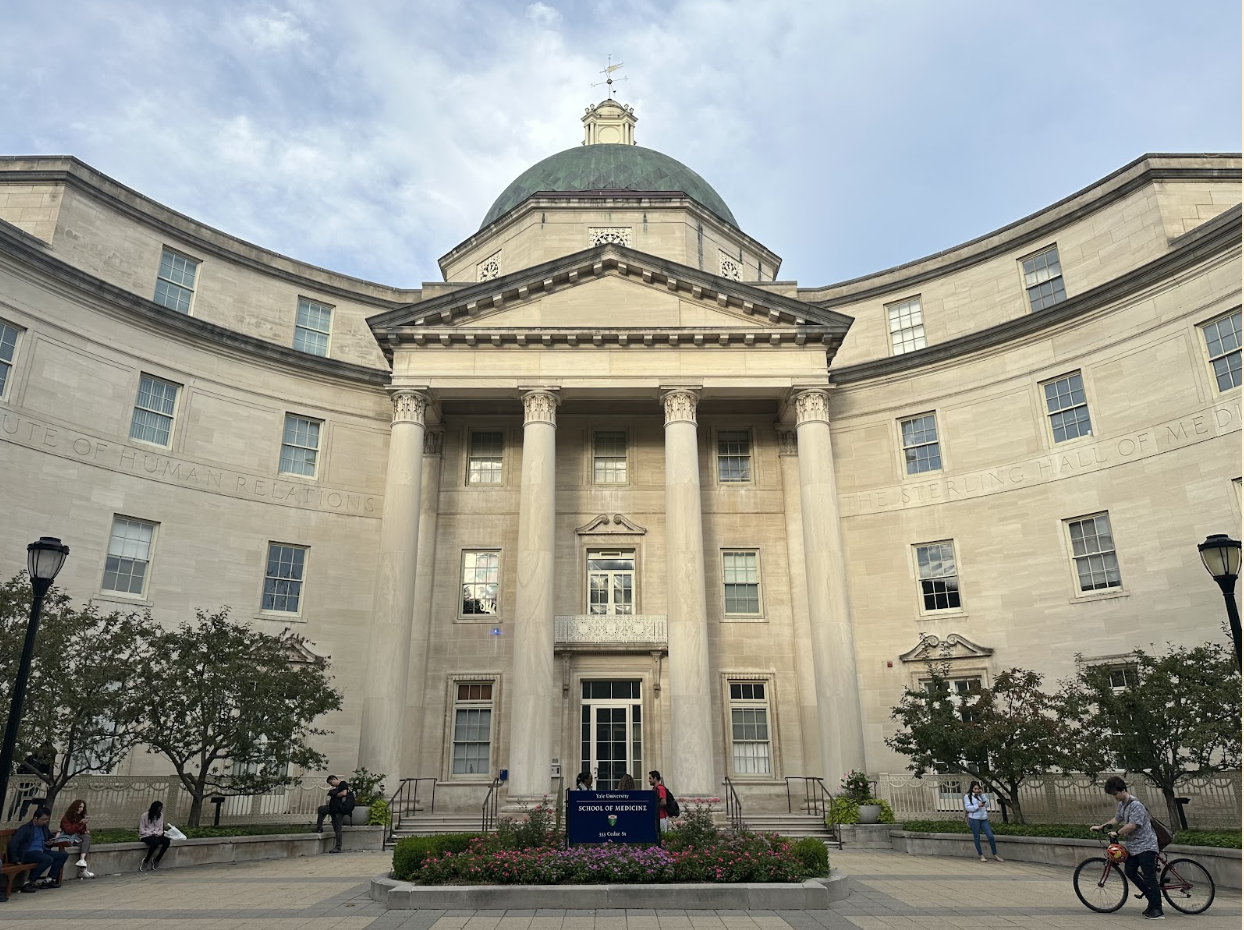New Asian Faculty Association at Yale holds first meeting, seeks to ‘promote and protect’ members on campus
The first meeting of the Asian Faculty Association at Yale elected its inaugural board, approved organizational bylaws and generated ideas for future programming.

Yolanda Wang, Contributing Photographer
Asian-identifying faculty from across the University are uniting as a new organization: the Asian Faculty Association at Yale.
On Friday, Sept. 15, Asian and Asian American faculty gathered at the Yale School of Medicine’s Brady Auditorium to announce AFAY’s inaugural board. The News spoke with some of AFAY’s founders about their reasons for establishing AFAY and their visions for the association’s future.
“Some challenges Asian faculty face are, for example, the glass ceiling and a lack of representation in leadership due to the perception that Asians are perpetual foreigners, and also issues of international politics,” said AFAY election moderator Haifan Lin. “We hope that, through AFAY, faculty can share their common experiences and find support in each other.”
The organization aims to build support both within and beyond its membership, and its mission statement includes advocacy for both members and for Yale’s Asian students, especially when facing challenges related to their cultural backgrounds or ethnicities.
In her remarks during AFAY’s first general meeting, Karen Lee Anderson, Associate Provost for Academic Resources and Faculty Development, said that 47 percent of non-ladder research faculty at the Yale School of Medicine identified as Asian in 2022. AFAY president-elect — an organizational term that essentially means vice president — Yongli Zhang pointed to the growing population of Asian faculty at Yale as a sign of AFAY’s “timely” and “much needed” establishment, and he emphasized the positive impact that faculty groups can have as “advocates for positive change at Yale.”
However, organization members made sure to explain that their organization’s mission was University-wide.
“It’s important to note that we’re not just an association for Asian and Asian American faculty members. We’re open to all faculty regardless of race, ethnicity, or rank, and we also seek to include and build relationships with Asian American students on campus,” said Siyuan Wang, AFAY secretary.
Currently, 194 faculty members have registered to join AFAY, of which 12 are non-Asian.
Lin, who was a part of core organizing efforts leading up to the elections, described the start of AFAY as coming from “after-dinner chats” and “community gatherings.” According to Lin, one faculty member hosted a barbecue for the AFAY organizers to meet and discuss plans for affiliation with the University.
Both Lin and Anderson also highlighted AFAY’s collaboration with University administration, including with Darin Latimore, deputy dean of the School of Medicine’s Office of Diversity, Equity & Inclusion, and Lakia Scott, associate provost for Faculty Development and Diversity; both Latimore and Scott were also in attendance at the general meeting.
“We are glad to report that the Provost’s office is very supportive of the establishment of AFAY,” AFAY president Qin Yan wrote in an email to 460 faculty members across Yale’s schools prior to board elections.
To vote for board candidates, faculty members used an online system managed by the School of Medicine’s DEI Office, independent of the AFAY founders and members. Voting took place from Sept. 12 to 14, and Latimore announced the results during the organization’s inaugural meeting the next day.
AFAY’s board includes six people; the group will later hold a run-off election for the sixth board position, which is currently tied.
AFAY organizers relied on emails, phone calls and word of mouth to invite faculty members to nominate themselves and their colleagues for board elections. The AFAY board members expressed interest in continuing to expand the organization, and, in an email to the News, Lin cited an “extensive effort to achieve fair representation of different Asian ethnic groups, gender[s and] career stages,” alongside efforts to include members across Yale College and the University’s 14 graduate and professional schools.
“A lot of the faculty members are associated with the School of Medicine because traditionally this school has a large Asian presence,” said Zhang. “We’re hoping to continue expanding, and we are actively seeking to promote more diverse ethnic and gender representation, especially in our board leadership.”
Following the elections and board announcements, AFAY members began to look toward future programming. A list of member ideas compiled during the general meeting included gatherings for Asian holidays such as Lunar New Year and Diwali, outreach to affinity groups at and beyond Yale and legal support for faculty experiencing discrimination.
Beyond plans for collaboration with University administration and student groups, the AFAY board members also hope to eventually provide support to Asian faculty at other institutions.
“To summarize our members’ ideas and what is listed on our agenda, our activities are to promote and protect,” said Wang. “So what that looks like is, under the ‘promote’ category, we have community celebrations and trainees. On the other side is to ‘protect’ — when our members are facing injustice due to geopolitical events and racism, we want to be their support.”
A reception to celebrate the establishment of AFAY will be held at the Provost’s House on Oct. 3.







